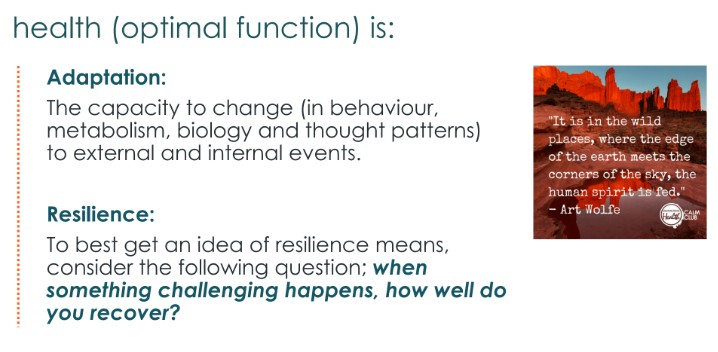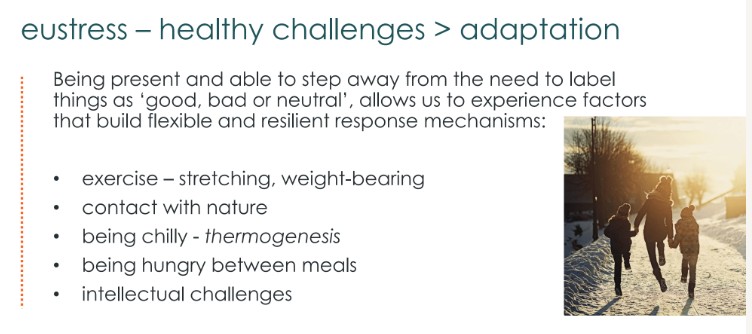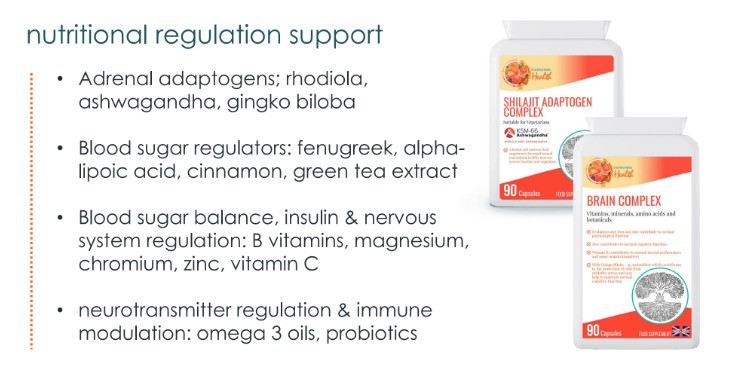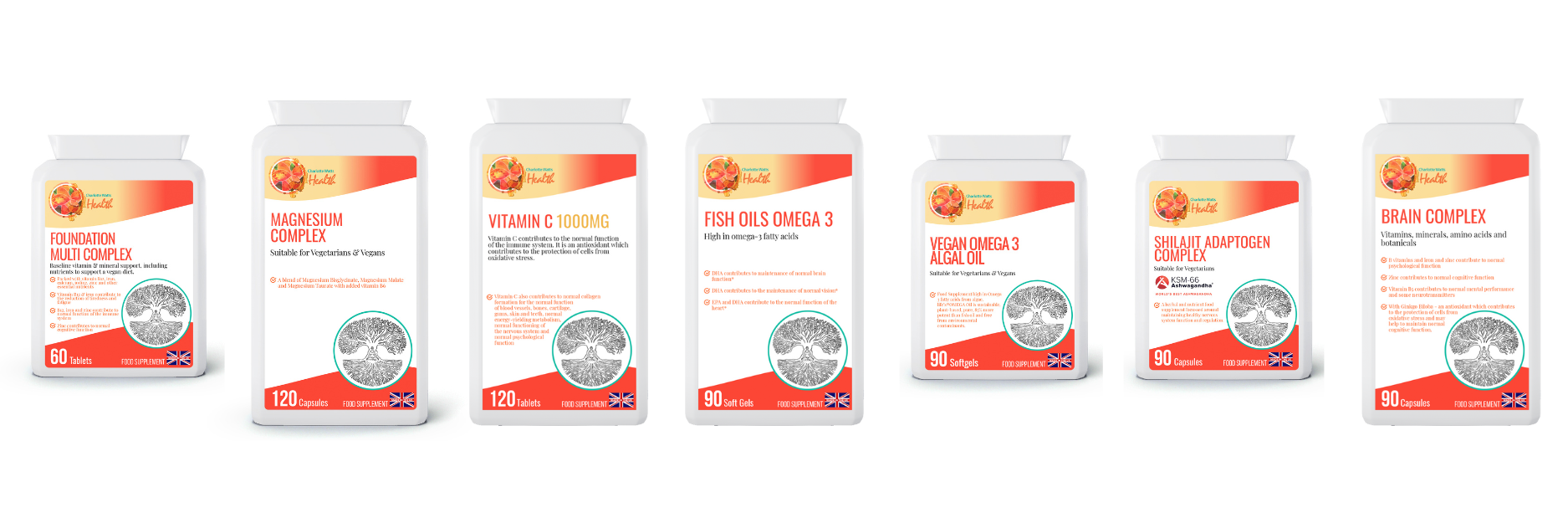Adaptation & Resilience for Health
Nov 14, 2025After 50 Whole Health webinars and a wealth of shared learning, it feels timely to gather some key threads together. This week we look at adaptation and resilience, and how these qualities shape our health.
Our bodies and minds expect change....
We are built for change. Every system in the body is designed to interweave, to respond, to move with shifting conditions. Yet in modern life, we have softened many of the natural contrasts we once adapted to - food is the same through all seasons, temperatures are controlled by heating or air conditioning, and discomfort is often avoided. Our physiology evolved to respond to change, and without it, that adaptive capacity can become dulled.
Adaptation, in behaviour, metabolism, biology, and thought, is what allows us to function optimally. Health is not just what we eat or do; it’s how well we support our capacity to adjust.

The Nature of Change
It is in the wild places, where the edge of the earth meets the corners of the sky, that the human spirit is fed. Challenge and change are what keep us responsive. When life doesn’t go to plan, how much can we adapt?
We might first meet change with resistance, frustration, or overwhelm. That’s natural. The key is knowing when we can release those reactions and move forward. Resilience is that ability to reroute, to find steadiness after disruption.
Resilience isn’t something we’re simply born with; it’s a skill we can learn and cultivate. Modern neuroscience shows that our brains and nervous systems have neuroplasticity - an innate capacity to rewire through experience. This means we can shift attitudes, broaden tolerance, and recover from stress in new ways.

Expanding Tolerance
Resilience grows as we widen our parameters of tolerance - moving away from perfectionism or error avoidance and into flexibility. When things don’t go as planned, we can learn to pause rather than spiral into negativity.
This doesn’t mean we have to respond positively to every challenge, but that we can find perspective and reorientate within reality. Mindfulness supports this process: being present with what is, without judgment or self-criticism. It interrupts cycles of anxiety or free-fall and helps the body integrate experiences rather than resist them.
All Whole Health practices are, in essence, mindful ones. They foster embodied awareness and invite us to meet experience with curiosity rather than reactivity.
The Body’s Role in Resilience
Movement is essential. Natural, spontaneous movement helps regulate the stress response and allows us to come back down from heightened states.
When we move, we intercept the feedback loops that drive inflammation and overstimulation. Even simple, regular movement shifts us from hypervigilance into balance. We learn what suits us, what pushes us too far, and where our healthy edge lies.
This is not about endurance or “no pain, no gain.” True resilience develops through movement that allows expression, curiosity, and trust in the body - dance, freeform movement, or any physical practice that engages joy and presence.
These actions promote brain coherence, reducing confusion, fatigue, and depression. The same coherence arises in meditation and nasal breathing - practices that help us integrate and see clearly rather than become overwhelmed.
Hormesis and the Adaptive Edge
Resilience is the body’s ability to adapt - what’s known as hormesis. Small, manageable doses of stress stimulate repair and renewal.
Examples are simple:
- Weight-bearing strengthens bones through micro-stress on joints.
- Stretching invites muscles to lengthen and release through mindful tension.
- Contact with nature reawakens the senses and the immune system.
- Our skin expects to meet the elements - to feel cold air, sunlight, or even the occasional scratch. These natural stimuli wake up circulation, lymphatic flow, and vitality.
- As seasons shift, small exposures to cold or hunger between meals can strengthen adaptive capacity. Even mild intermittent fasting - eating within an eight-hour window - helps regulate blood sugar and metabolic balance.
Nutrients and Support for Resilience
Adaptation also depends on the body’s biochemical foundation. Balanced blood sugar, stable energy, and healthy stress responses rely on the adrenal–thyroid–hormone connection.
Herbal adaptogens such as ginkgo biloba and L-tyrosine support adrenal and thyroid function, helping to regulate the HPA axis. Spices like turmeric and ginger, and nutrients such as B vitamins, magnesium, zinc, chromium, and vitamin C, are essential for nervous system and immune regulation.
Supporting the microbiome through omega-3s and probiotics further strengthens our adaptive resilience, linking gut health with neurotransmitter balance and overall vitality.

Breath and Posture
Finally, the simple practices of nasal breathing and upright posture bring everything together. They create coherence through the whole system - regulating oxygen flow, calming the nervous system, and grounding awareness back into the body.
Adaptation and resilience are not single practices, but ongoing relationships with how we meet life. By allowing challenge, change, and rest to coexist, we rediscover our natural capacity to recover and thrive.
This blog was taken from Chapter 8 of my Nine Foundations of Whole Health Natural Health Webinar (available to Whole Health Members).
Discover Whole Health with Charlotte here featuring access to yoga classes, meditations, natural health webinars, a recipe database, supplement discounts and more... you can use the code WH100 to try a month for free, then choose from several pricing options to suit you and cancel anytime you need.
These are the supplements featured in the whole webinar from the Charlotte Watts Health range at the shop site. Click on the image below to see those there. Whole Health members receive a 20% discount on all products within the shop. See details on joining Whole Health and everything that includes here.





